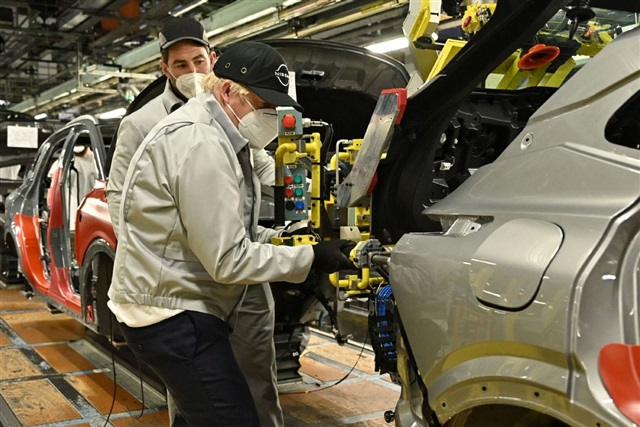Introduction
Taiwan’s auto parts industry is facing significant uncertainty following U.S. President Donald Trump’s decision to impose a 25% tariff on foreign-made auto parts, effective May 3. Taiwanese companies are now evaluating their next steps, with some considering shifting production to the United States while others fear the long-term consequences of rising costs and declining demand.
Taiwan’s Auto Industry at a Crossroads
Impact of the 25% Tariff
The announcement of the new tariffs has sent ripples across the global auto industry, particularly affecting Taiwanese manufacturers that supply original equipment manufacturers (OEMs) and aftermarket parts to the U.S. market. Prior to this decision, Taiwanese auto parts were subject to only 2.5% tariffs, making them competitive in price while maintaining high quality.
With the increase to 25%, manufacturers now face:
- Higher export costs, making Taiwanese products less attractive to U.S. buyers.
- A potential drop in demand as consumers look for cheaper alternatives.
- A shift in investments as some companies explore moving production to the U.S.
How Taiwanese Companies Are Responding
Tong Yang Group: Expanding U.S. Operations
Tong Yang Group, a leading Taiwanese auto parts manufacturer specializing in plastics, sheet metal, and cooling systems, has confirmed that it will continue expanding its U.S. production lines. The company has had operations in the U.S. for over 30 years, but now faces increased pressure to scale up local production to avoid high tariffs.
However, a company spokesperson acknowledged that moving production will come with challenges, including:
- Higher labor costs in the U.S., which could reduce profitability.
- Shortages of skilled workers, which could delay expansion plans.
- Increased production costs, which will push up the price of both auto parts and finished vehicles in the U.S.
Hushan Autoparts: Concern Over Declining Demand
Hushan Autoparts Inc., a major manufacturer of car door handles, is taking a wait-and-see approach. The company warns that higher tariffs could significantly impact demand, as:
- Consumers may delay repairs or maintenance due to higher prices.
- U.S. insurance companies might seek alternative parts from other countries or third-party producers.
A Hushan Autoparts executive noted that aftermarket parts will likely become more popular, as American consumers and businesses look for cost-saving solutions.
Aftermarket Parts: A Silver Lining for Taiwan?
Despite the challenges, Taiwan’s aftermarket auto parts sector may actually benefit from the tariff hikes. Several U.S. insurance companies, including State Farm, already prefer Taiwanese aftermarket components due to their:
- Lower costs compared to OEM parts
- Certification from the Certified Automotive Parts Association (CAPA)
- High quality and reliability
According to the Taiwan Transportation Vehicle Manufacturers Association, the demand for affordable replacement parts in the U.S. remains strong. Taiwanese manufacturers are well-positioned to meet this demand, especially as American consumers seek cost-effective solutions to rising auto repair expenses.
The Bigger Picture: U.S.-Taiwan Trade Relations
The new tariffs are part of Trump’s broader trade policy, which aims to bring more manufacturing jobs back to the U.S.. However, Taiwanese business leaders argue that the policy:
- Fails to consider Taiwan’s role as a reliable U.S. trade partner.
- Will raise overall costs for U.S. consumers and businesses.
- Could lead to supply chain disruptions, particularly for companies that rely on Taiwanese auto parts.
The Taiwan Transportation Vehicle Manufacturers Association has urged the U.S. government to reconsider the tariff hikes, arguing that maintaining the 2.5% tariff would be a win-win solution that supports both Taiwanese suppliers and American consumers.
Future Outlook
The auto industry is now closely watching how companies adapt to the new trade environment. Some Taiwanese manufacturers may expand U.S. operations, while others could pivot toward aftermarket parts or seek alternative markets outside the U.S.
Despite the immediate challenges, Taiwan remains a key player in the global auto parts industry, known for its high-quality, cost-effective manufacturing. How companies navigate these new tariffs will shape the industry’s future in the U.S. and beyond.
FAQs
Why is the U.S. imposing a 25% tariff on auto parts?
The new tariffs are part of U.S. President Donald Trump’s trade policy, which aims to encourage more domestic manufacturing and reduce reliance on foreign-made auto parts.
How will the tariffs impact Taiwanese auto parts suppliers?
Taiwanese companies exporting auto parts to the U.S. will face significantly higher costs, potentially reducing demand and pushing them to explore U.S.-based manufacturing options.
Will Taiwanese companies move production to the U.S.?
Some companies, like Tong Yang Group, are considering expanding production in the U.S. However, concerns about high labor costs and workforce shortages remain a challenge.
How will the tariffs affect American consumers?
The increased tariffs could lead to higher prices for auto repairs and maintenance in the U.S., as both OEM and aftermarket parts become more expensive.
Will the U.S. government reconsider the tariff increase?
Taiwanese industry groups are urging the U.S. to maintain the previous 2.5% tariff, arguing that the new 25% rate could harm both industries and consumers.


